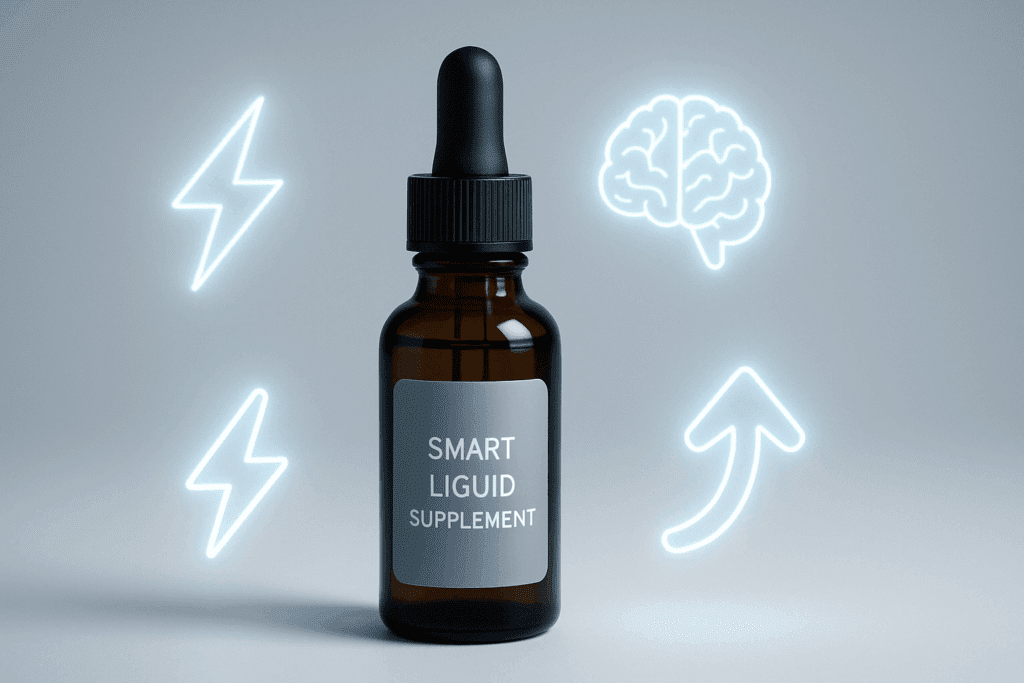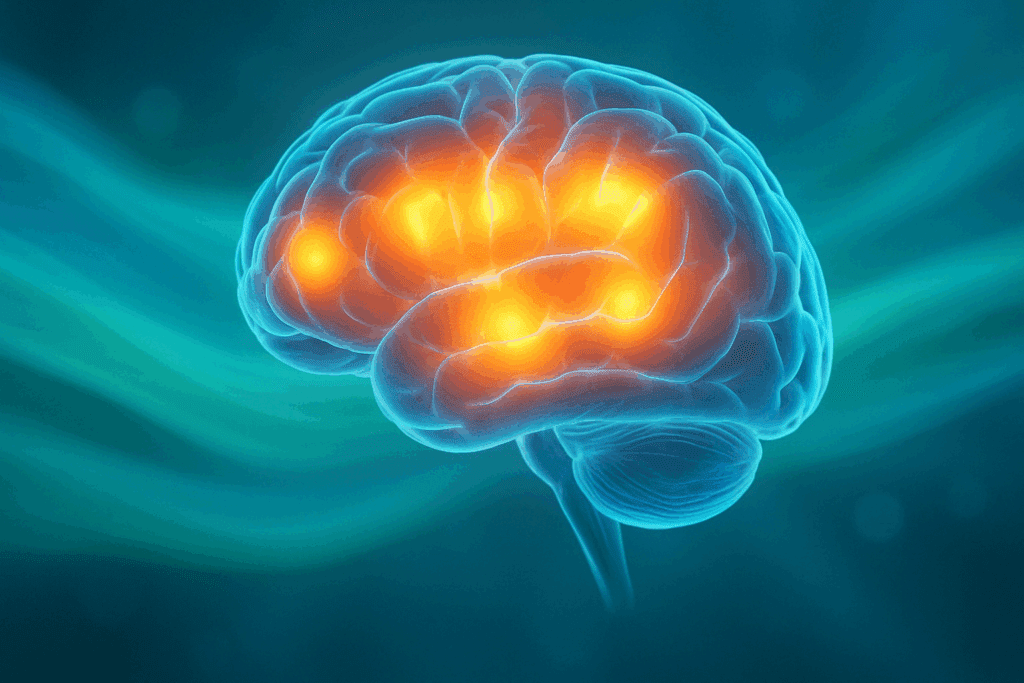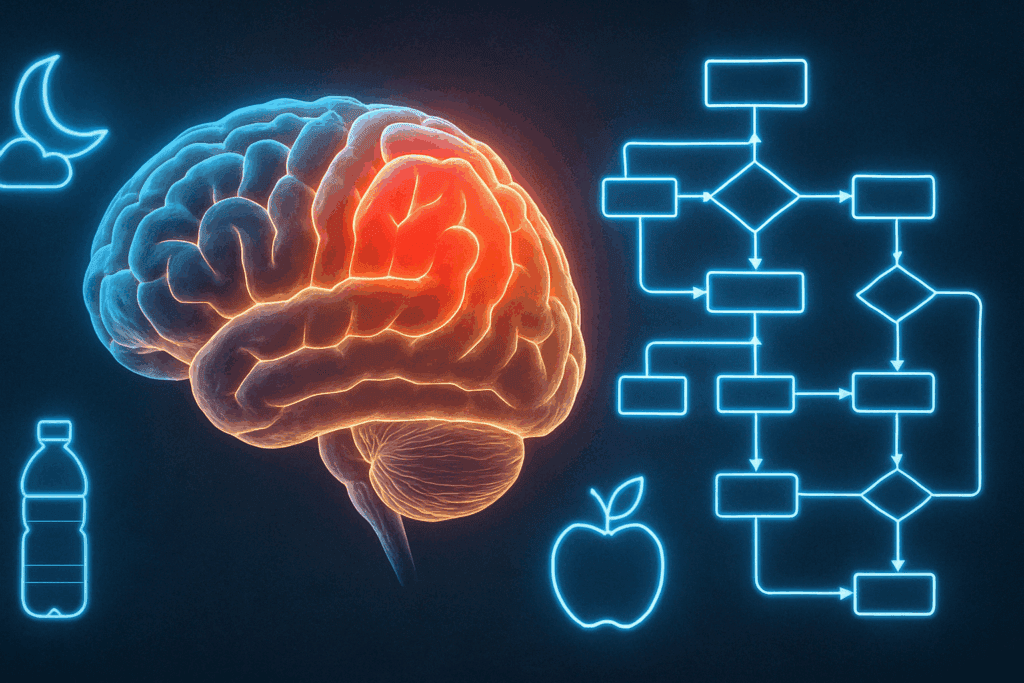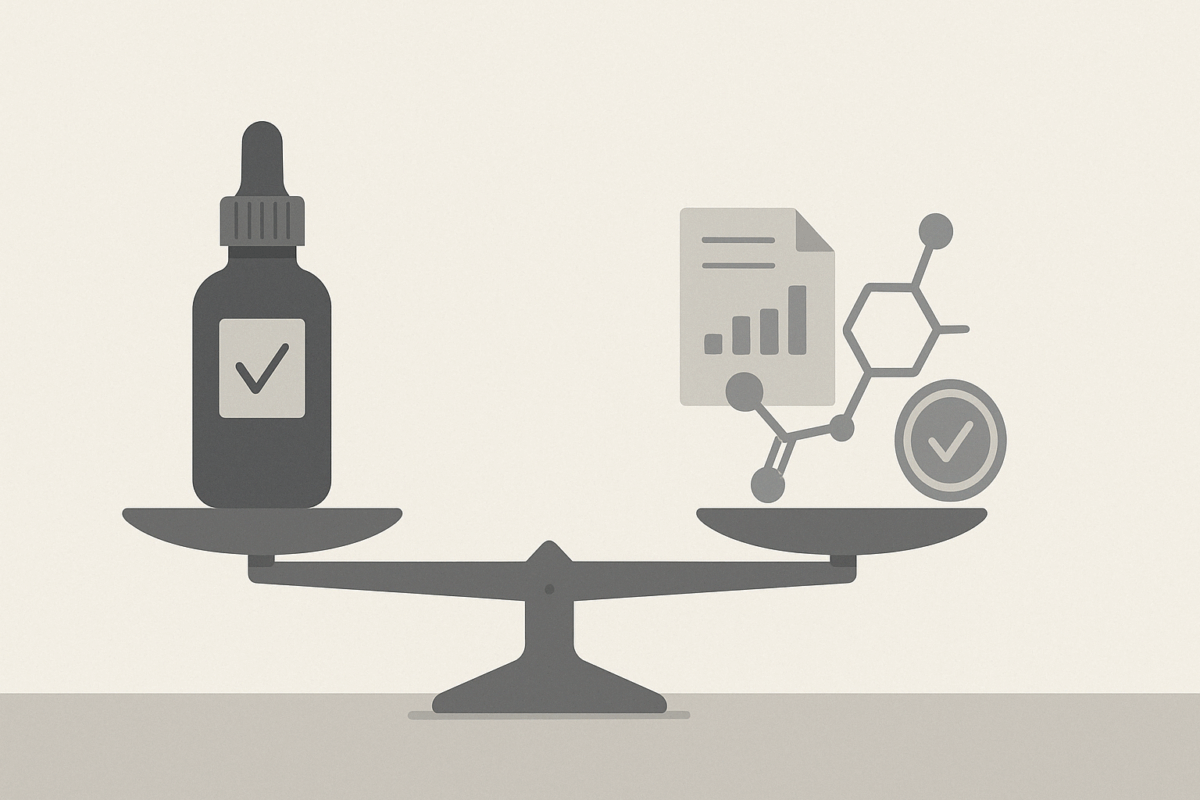In an age where mental clarity is currency and decision-making speed can define success, nootropic supplements like Apetropics Smart Drops have carved out a growing presence in the wellness world. Marketed as a fast-acting liquid brain booster that enhances focus, attention, and cognitive performance, these drops promise to optimize brainpower in ways that resonate with professionals, students, and anyone grappling with mental fatigue. But in a space crowded with bold claims and minimal oversight, one question remains front and center: do Apetropics Smart Drops really work?
You may also like: How to Choose the Best Brain Supplements for Adults: Science-Backed Ingredients That Support Focus, Memory, and Mental Clarity
From an evidence-based perspective, the answer requires a careful analysis of both the ingredients and the broader user experience. Many are drawn in by compelling Apetropics Smart Drops reviews, while others question: are smart drops legit or just another overhyped wellness trend? This comprehensive exploration provides a science-backed review of what Apetropics is, what makes Smart Drops unique, and whether the product genuinely supports focus and executive function — particularly for those navigating ADHD or high-demand cognitive environments.

Understanding What Apetropics Is and What Sets It Apart
To evaluate whether Apetropics Smart Drops are worth the investment, it’s essential first to answer a foundational question: what is Apetropics? Apetropics is a wellness company that develops nootropic and adaptogenic supplements designed to enhance cognition, energy, and stress resilience. The brand rose to popularity largely through viral videos and social proof from early adopters touting its flagship product — Apetropics Smart Drops — for delivering noticeable mental clarity within minutes of use.
Unlike traditional capsules or powders, Apetropics markets a liquid supplement format intended to offer rapid sublingual absorption. The appeal of this delivery system isn’t merely convenience; it’s also based on the premise that bypassing the digestive tract enables faster effects. But before determining whether this advantage is medically significant, it’s important to look beyond the format and explore the actual content and function of the drops.
A common question that surfaces is: are smart drops legit, or is the product’s popularity fueled more by clever marketing than clinical validation? To explore this further, we must dissect the ingredients and analyze what current science says about their individual and collective effectiveness.
A Closer Look at Apetropics Smart Drops Ingredients
Ingredient transparency is key to evaluating any supplement’s efficacy, and in this case, Apetropics Smart Drops ingredients include a blend of well-known nootropics and adaptogens. The primary actives in most Apetropics Smart Drops formulations typically feature lion’s mane mushroom, MCT oil, phosphatidylserine, L-theanine, Alpha GPC, and turmeric — among others. Each of these components carries a unique cognitive function profile supported by varying degrees of scientific literature.
Lion’s mane mushroom, for example, is widely researched for its neurotrophic properties, particularly its role in stimulating nerve growth factor (NGF), which is essential for neuron repair and communication. This makes it a potentially powerful ally in long-term brain health and memory formation. However, the results are generally seen with consistent, long-term use, raising questions about the claim that a single dose can dramatically boost mental focus.
Similarly, Alpha GPC — a choline compound that crosses the blood-brain barrier — has shown promising results in improving attention and cognitive speed. It’s particularly relevant in contexts related to ADHD and executive functioning. When used alongside phosphatidylserine and L-theanine, the combination may promote sharper attention and reduced distractibility, particularly under stress or cognitive load.
Yet, when evaluating Apetropics one drops reviews, many users focus more on the subjective experience of energy or mental lift rather than the measurable effects of these compounds on neurotransmitter modulation or synaptic plasticity. This contrast between anecdotal benefits and clinical plausibility is central to the ongoing debate around whether smart drops really work — or merely seem to, due to placebo or context.

Smart Drops ADHD Claims: Hype or Help?
Among the most frequently searched queries related to Apetropics Smart Drops is whether the product can help with ADHD. The phrase “smart drops ADHD” has been making the rounds across wellness forums and social media, and understandably so. As attention-deficit hyperactivity disorder continues to be diagnosed in both children and adults at growing rates, many are looking for natural alternatives to conventional medications like Adderall or Ritalin.
Scientifically, some of the ingredients in Apetropics Smart Drops do have research-backed benefits that overlap with ADHD symptom management. Alpha GPC has been associated with increased dopamine and acetylcholine activity — two neurotransmitters critical for attention and working memory. L-theanine has shown calming effects that may mitigate overstimulation without impairing mental clarity. Even turmeric, known for its anti-inflammatory properties, is being explored for its impact on neuroinflammation — a potential contributor to ADHD-related cognitive symptoms.
Still, these ingredients in isolation don’t equate to a clinically effective ADHD treatment. While some smartdrops reviews highlight increased focus and reduced brain fog after consistent use, these effects tend to be mild and variable, especially compared to prescription medication. Moreover, scientific studies examining these ingredients typically use higher doses or more targeted formulations than what is likely present in a small daily dropper dose.
Ultimately, while Apetropics Smart Drops may offer some cognitive support, they should not be viewed as a replacement for medical management of ADHD. However, for individuals seeking a natural boost in focus and decision-making stamina — particularly during work or study — these drops might serve as a useful tool, especially when used as part of a broader cognitive health regimen.
Do Apetropics Smart Drops Really Work or Is It Just the Placebo Effect?
When evaluating whether Apetropics Smart Drops really work, one of the challenges is parsing subjective experiences from objective benefits. In many of the most positive apetropics smart drops reviews, users describe a noticeable uptick in clarity, motivation, and mental energy within 15 to 30 minutes. These quick-onset effects align with the sublingual delivery method, which is known to facilitate faster absorption for compounds like MCT oil and Alpha GPC.
However, clinical data on the efficacy of this specific formulation is lacking. The company does not publish peer-reviewed trials or standardized results, which makes it difficult to separate scientifically measurable outcomes from the compelling psychology of expectation. When a product is positioned with such confidence and style — and especially when users are told to expect results “within minutes” — the placebo effect can be potent.
That said, this does not necessarily mean that Apetropics Smart Drops are ineffective. Many natural supplements generate their benefits gradually, through subtle modulation of neurotransmitters and stress responses. When used consistently, certain users may find they perform better under pressure, make decisions with greater fluidity, and feel more mentally present in demanding environments. The key lies in setting realistic expectations and recognizing that cognitive enhancement is rarely a one-size-fits-all experience.

Are Smart Drops Legit or Just a Wellness Trend?
Given the influx of new supplements on the market, it’s reasonable to ask: are smart drops legit? The term “legit” in this context typically refers to whether the product delivers on its promises, is safe, and is grounded in real scientific mechanisms rather than pseudoscience. Apetropics Smart Drops check several important boxes. The ingredients are largely well-studied, the formulation is transparent, and there is a growing body of consumer reviews suggesting genuine benefit.
Nonetheless, concerns around the legitimacy of the brand continue to surface. Some skeptics question the consistency of the formulation and whether the amounts of active ingredients are sufficient to induce real change. This has given rise to queries like “is Apetropics legit” or even “Apetropics Smart Drops scam,” especially when customer service issues or misleading marketing come into play. These concerns underscore the importance of critically evaluating not only product composition but also brand ethics and transparency.
For Apetropics to solidify its legitimacy in the nootropic space, third-party testing, clearer dosage information, and clinical trials would go a long way. Until then, the answer to whether Apetropics Smart Drops are legit will depend largely on individual user response and their expectations.
What Apetropics One Drops Reviews Reveal About User Experience
A detailed analysis of Apetropics one drops reviews reveals a wide range of experiences, from highly positive to entirely neutral. Many users report improved mental clarity, reduced stress, and a subtle yet sustained energy lift — often without the jitteriness associated with traditional stimulants. This makes the drops appealing to those seeking functional focus without relying on caffeine or amphetamine-based drugs.
On the flip side, some reviews express disappointment in the product’s effects or question its consistency over time. It’s not uncommon to find a user praising the drops in one review, while another claims to feel no discernible change. This variability points to an important reality in the nootropics world: individual biochemistry, expectations, and context all play a major role in how a supplement performs.
Of equal concern are questions about the safety and potential Apetropics one drops side effects. While the ingredients are generally regarded as safe when used responsibly, individuals with sensitivities or underlying medical conditions should consult with a healthcare provider before beginning any new supplement. Reported side effects are rare but may include mild gastrointestinal discomfort or headaches — common responses to adaptogens or cognitive enhancers, especially in the early stages of use.
The Science and Psychology Behind Decision-Making Optimization
Central to the appeal of Apetropics Smart Drops is the promise of better decision-making. In high-pressure settings — whether in finance, education, medicine, or entrepreneurship — mental fatigue can impair judgment and reduce cognitive flexibility. Ingredients like L-theanine and Alpha GPC are thought to help optimize prefrontal cortex function, supporting sustained attention and impulse regulation.
However, it’s worth remembering that decision-making optimization is multifactorial. Sleep, hydration, emotional regulation, and even gut health all play crucial roles in how we process information and evaluate risks. Smart drops may serve as a cognitive support tool, but their effectiveness depends on integration into a broader health strategy. As research increasingly supports the gut-brain axis and the role of inflammation in cognitive impairment, the anti-inflammatory compounds in Apetropics — such as turmeric and MCT oil — may offer supplementary value, particularly when combined with dietary and lifestyle improvements.
Does Apetropics Really Work as a Long-Term Cognitive Aid?
For those wondering, “does Apetropics really work over time?” the answer is nuanced. Cognitive enhancement supplements are best evaluated over extended periods. While a single dose may provide a temporary sense of heightened alertness, the neuroprotective and adaptogenic ingredients in Apetropics are intended to build resilience with sustained use.
In particular, long-term benefits may come from the presence of lion’s mane, which has demonstrated promise in promoting neurogenesis and protecting against age-related cognitive decline. Combined with other compounds that support neurotransmitter synthesis and cellular energy production, Smart Drops may serve a dual role — offering short-term mental clarity and long-term cognitive support.
However, longitudinal studies on the product itself are currently unavailable, making it difficult to substantiate long-term claims. As a result, the question of whether Apetropics Smart Drops really work in the long run remains open — though the ingredients provide a promising foundation.
Are There Any Legitimate Concerns About Safety?
One of the most pressing questions users ask is whether Apetropics Smart Drops are safe for regular use. The answer, in general, is yes — when taken as directed and by individuals without contraindicating health conditions. The ingredients have all been individually studied for safety, and no major red flags exist regarding their use in moderate doses.
Still, a small subset of individuals may experience side effects, particularly if combining Apetropics with other nootropics or stimulants. Concerns about appetite suppression, digestive upset, or overstimulation have occasionally emerged in user reports. For this reason, understanding Apetropics Smart Drops ingredients and how they interact with one’s personal biochemistry is essential.
As always, those with pre-existing conditions, those taking prescription medications, or individuals who are pregnant or breastfeeding should consult a medical professional before starting any new supplement — no matter how natural or mainstream it may appear.

Standalone FAQ: Advanced Insights on Apetropics Smart Drops
1. Are smart drops legit, or are they just another supplement trend?
Smart drops—particularly Apetropics Smart Drops—have stirred up a lot of online discussion, but legitimacy depends on a mix of formulation, transparency, and user response. While anecdotal results are promising for some, scientific backing on nootropic tinctures is still evolving. That said, Apetropics Smart Drops contain ingredients commonly associated with cognitive support, like L-Theanine and Alpha GPC, which have a foundation in neuroscience research. To determine whether Apetropics Smart Drops are legit for you, consider third-party testing, the brand’s manufacturing practices, and if their formula aligns with your cognitive goals. Ultimately, user-specific biochemistry and expectations play a critical role in determining whether a product like this is truly effective or merely perceived as such.
2. What do expert-level Apetropics Smart Drops reviews overlook that users should know?
Most professional Apetropics Smart Drops reviews focus on the ingredient list, general benefits, and short-term cognitive enhancement. However, many overlook potential interactions with medications or the importance of cycling nootropics to avoid tolerance. For example, consistent use of choline donors like Alpha GPC without breaks may lead to receptor downregulation over time, dulling its effectiveness. Another commonly ignored aspect is the influence of your diet and lifestyle—smart drops are supplements, not magic bullets. Reading between the lines of smartdrops reviews means recognizing that while the product might enhance focus for some, it won’t override poor sleep, excessive screen time, or chronic stress.
3. Do Apetropics really work for long-term focus enhancement, or is it more of a short-term boost?
The question “Do Apetropics really work?” depends largely on your timeline and expectations. While many users report a noticeable increase in clarity and energy shortly after use, long-term cognitive enhancement requires more than a single supplement. Apetropics Smart Drops can be a helpful component in a broader lifestyle protocol that includes sleep hygiene, stress management, and brain-training exercises. The synergy between smart drops ingredients and neuroplasticity-based activities—like dual n-back tasks or meditation—can enhance retention and concentration over time. So yes, Apetropics can work, but they’re most effective when paired with consistent mental fitness habits rather than used in isolation.
4. What sets Apetropics One Drops reviews apart from other smart drops reviews?
Apetropics One Drops reviews tend to be more polarized than reviews for typical nootropic supplements, likely due to the product’s sublingual delivery system. Unlike capsules, the liquid form offers quicker absorption, which can lead to a more noticeable “onset” effect—something frequently mentioned in both positive and critical smart drops reviews. However, bioavailability alone doesn’t guarantee effectiveness, and many Apetropics One Drops reviews fail to assess long-term brain health outcomes or cumulative impact. A more nuanced analysis would involve blood-brain barrier permeability, metabolic clearance rate, and whether key neurotransmitters like acetylcholine or dopamine are sustainably supported. This layer of complexity is often skipped in casual reviews but matters significantly when evaluating cognitive performance tools.
5. How do the Apetropics Smart Drops ingredients interact with ADHD management?
When asking whether smart drops work for ADHD, context is key. Apetropics Smart Drops ingredients such as L-Theanine and Alpha GPC may support neurotransmitter balance and calm hyperactive neural pathways, especially when used alongside mindfulness strategies. While this doesn’t equate to a clinical treatment, these compounds have been studied for their potential to reduce distractibility and enhance executive functioning. However, ADHD is a neurodevelopmental condition with highly individualized manifestations, so results can vary. Anyone using smart drops for ADHD—particularly alongside stimulant medications—should consult a healthcare provider to monitor for unintended interactions and ensure safety.
6. What is Apetropics doing to build trust in a crowded nootropics market?
What is Apetropics doing differently? For one, they’ve focused on crafting a brand narrative that emphasizes natural ingredients and fast absorption, positioning their smart drops as an innovative alternative to traditional pills. Additionally, the company has leveraged influencer partnerships and direct-to-consumer transparency through their website and packaging. While this builds brand identity, critics still question: Is Apetropics legit? Without third-party lab results published publicly and long-term safety data, skepticism remains. Yet the company seems committed to growing consumer trust, and future clinical trials or peer-reviewed research could significantly enhance their credibility in the crowded nootropics space.

7. Does Smart Drops really work, or is the experience mostly placebo?
Many consumers ask, “Does Smart Drops really work?”—and the answer may straddle a line between neurochemistry and psychology. Sublingual delivery allows for faster perception of effect, which can amplify the placebo response in users expecting a brain boost. That said, key smart drops ingredients like Alpha GPC do have legitimate nootropic properties, especially for supporting acetylcholine levels, a neurotransmitter linked with memory and attention. The mind-body connection plays a powerful role in perceived productivity, so for some users, simply feeling more in control or “primed” after using smart drops can improve performance. Distinguishing between true biochemical enhancement and placebo requires controlled testing—which, so far, has not been fully established in peer-reviewed studies of Apetropics.
8. Are there potential downsides or side effects to using Apetropics One Drops daily?
Apetropics One Drops side effects are not widely reported, but users have occasionally mentioned headaches, jitteriness, or nausea—symptoms often associated with overactivation of the central nervous system. If you’re sensitive to cholinergic or adaptogenic compounds, ingredients like Alpha GPC or Panax Ginseng may overstimulate rather than balance your neurochemistry. Moreover, daily use without cycling could lead to diminished effectiveness over time, especially if receptors downregulate in response to constant stimulation. While many Apetropics Smart Drops reviews are positive, few address long-term effects, which remain a blind spot in consumer awareness. Monitoring your body’s response over several weeks and introducing rest days can help minimize potential risks.
9. Do Apetropics Smart Drops really work differently than traditional cognitive enhancers?
Yes, Apetropics Smart Drops work differently primarily due to their delivery mechanism and blend of fast-acting ingredients. Unlike many over-the-counter nootropics that rely on caffeine or synthetic stimulants, Apetropics uses a more holistic approach with compounds known for modulating alpha brain waves and acetylcholine production. The absence of harsh stimulants means users may avoid the jittery side effects common with conventional energy pills. However, this also means the effects are more subtle and may require several uses to build up noticeable changes. The difference lies in sustainability and gentler cognitive support rather than immediate, high-impact boosts—something often underappreciated in most Apetropics reviews.
10. Is there any evidence of an Apetropics Smart Drops scam, or are user concerns based on misunderstanding?
Allegations of an Apetropics Smart Drops scam typically stem from misunderstanding marketing language or dissatisfaction with results, not from fraudulent intent. Some users expect pharmaceutical-level performance from natural ingredients and feel let down when results are more subtle. Others misinterpret the refund policy or automatic subscription practices as deceptive, when in fact these are fairly common in the supplement industry. It’s critical to assess the company based on ingredient transparency, customer service, and ethical advertising—not just viral complaints. While it’s fair to ask “Is Apetropics legit?”, a thorough reading of the label, terms of service, and independent reviews often reveals that the product is more misunderstood than malicious.

Final Thoughts: Are Apetropics Smart Drops Legit and Effective for Mental Clarity?
In the growing world of cognitive enhancement, Apetropics Smart Drops offer a compelling, fast-acting option for those seeking a natural edge in focus and decision-making. While the formulation is thoughtfully designed and rich in ingredients with solid scientific backing, the evidence supporting the product’s efficacy remains largely anecdotal. That said, the balance of ingredients, user reports, and the brand’s increasing popularity point to a product that has legitimate potential — especially for those who understand its limits and use it mindfully.
Ultimately, Apetropics Smart Drops are not a magic solution, but they are also not a scam. The question “do Apetropics Smart Drops really work?” depends on context, expectations, and consistency. When used responsibly and as part of a broader cognitive wellness routine, they may offer meaningful support for mental energy, clarity, and resilience — even for individuals managing ADHD-like symptoms or high-stakes decision-making scenarios.
Was this article helpful? Don’t let it stop with you. Share it right now with someone who needs to see it—whether it’s a friend, a colleague, or your whole network. And if staying ahead on this topic matters to you, subscribe to this publication for the most up-to-date information. You’ll get the latest insights delivered straight to you—no searching, no missing out.
Further Reading:
Apetropics Smart Drops Reviews – Is It Legit? Ingredients, Side Effects, Risks, Alternatives
What are Apetropics Smart Drops, and how can they benefit cognitive function and overall health?


